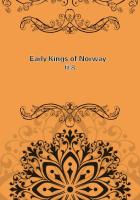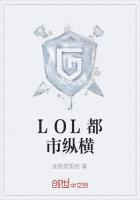A brief description of this one-time notorious rendezvous of freebooters might not be out of place. It consisted of a little settlement of those wattled and mud-smeared houses such as you find through the West Indies. There were only three houses of a more pretentious sort, built of wood. One of these was a storehouse, another was a rum shop, and a third a house in which dwelt a mulatto woman, who was reputed to be a sort of left-handed wife of Captain Scarfield's. The population was almost entirely black and brown. One or two Jews and a half dozen Yankee traders, of hardly dubious honesty, comprised the entire white population. The rest consisted of a mongrel accumulation of negroes and mulattoes and half-caste Spaniards, and of a multitude of black or yellow women and children. The settlement stood in a bight of the beach forming a small harbor and affording a fair anchorage for small vessels, excepting it were against the beating of a southeasterly gale. The houses, or cabins, were surrounded by clusters of coco palms and growths of bananas, and a long curve of white beach, sheltered from the large Atlantic breakers that burst and exploded upon an outer bar, was drawn like a necklace around the semi-circle of emerald-green water.
Such was the famous pirates' settlement of San Jose--a paradise of nature and a hell of human depravity and wickedness--and it was to this spot that Mainwaring paid another visit a few days after rescuing the crew of the Baltimore Belle from her shattered and sinking wreck.
As the little bay with its fringe of palms and its cluster of wattle huts opened up to view, Mainwaring discovered a vessel lying at anchor in the little harbor. It was a large and well-rigged schooner of two hundred and fifty or three hundred tons burden. As the Yankee rounded to under the stern of the stranger and dropped anchor in such a position as to bring her broadside battery to bear should the occasion require, Mainwaring set his glass to his eye to read the name he could distinguish beneath the overhang of her stern. It is impossible to describe his infinite surprise when, the white lettering starting out in the circle of the glass, he read, The Eliza Cooper, of Philadelphia.
He could not believe the evidence of his senses. Certainly this sink of iniquity was the last place in the world he would have expected to have fallen in with Eleazer Cooper.
He ordered out the gig and had himself immediately rowed over to the schooner. Whatever lingering doubts he might have entertained as to the identity of the vessel were quickly dispelled when he beheld Captain Cooper himself standing at the gangway to meet him. The impassive face of the friend showed neither surprise nor confusion at what must have been to him a most unexpected encounter.
But when he stepped upon the deck of the Eliza Cooper and looked about him, Mainwaring could hardly believe the evidence of his senses at the transformation that he beheld. Upon the main deck were eight twelve- pound carronade neatly covered with tarpaulin;in the bow a Long Tom, also snugly stowed away and covered, directed a veiled and muzzled snout out over the bowsprit.
It was entirely impossible for Mainwaring to conceal his astonishment at so unexpected a sight, and whether or not his own thoughts lent color to his imagination, it seemed to him that Eleazer Cooper concealed under the immobility of his countenance no small degree of confusion.
After Captain Cooper had led the way into the cabin and he and the younger man were seated over a pipe of tobacco and the invariable bottle of fine old Jamaica rum, Mainwaring made no attempt to refrain from questioning him as to the reason for this singular and ominous transformation.
"I am a man of peace, James Mainwaring," Eleazer replied, "but there are men of blood in these waters, and an appearance of great strength is of use to protect the innocent from the wicked.
If I remained in appearance the peaceful trader I really am, how long does thee suppose I could remain unassailed in this place?"It occurred to Mainwaring that the powerful armament he had beheld was rather extreme to be used merely as a preventive. He smoked for a while in silence and then he suddenly asked the other point-blank whether, if it came to blows with such a one as Captain Scarfield, would he make a fight of it?
The Quaker trading captain regarded him for a while in silence.
His look, it seemed to Mainwaring, appeared to be dubitative as to how far he dared to be frank. "Friend James," he said at last, "I may as well acknowledge that my officers and crew are somewhat worldly. Of a truth they do not hold the same testimony as I. I am inclined to think that if it came to the point of a broil with those men of iniquity, my individual voice cast for peace would not be sufficient to keep my crew from meeting violence with violence. As for myself, thee knows who I am and what is my testimony in these matters."Mainwaring made no comment as to the extremely questionable manner in which the Quaker proposed to beat the devil about the stump. Presently he asked his second question:
"And might I inquire," he said, "what you are doing here and why you find it necessary to come at all into such a wicked, dangerous place as this?""Indeed, I knew thee would ask that question of me," said the Friend, "and I will be entirely frank with thee. These men of blood are, after all, but human beings, and as human beings they need food. I have at present upon this vessel upward of two hundred and fifty barrels of flour which will bring a higher price here than anywhere else in the West Indies. To be entirely frank with thee, I will tell thee that I was engaged in ****** a bargain for the sale of the greater part of my merchandise when the news of thy approach drove away my best customer."Mainwaring sat for a while in smoking silence. What the other had told him explained many things he had not before understood.














